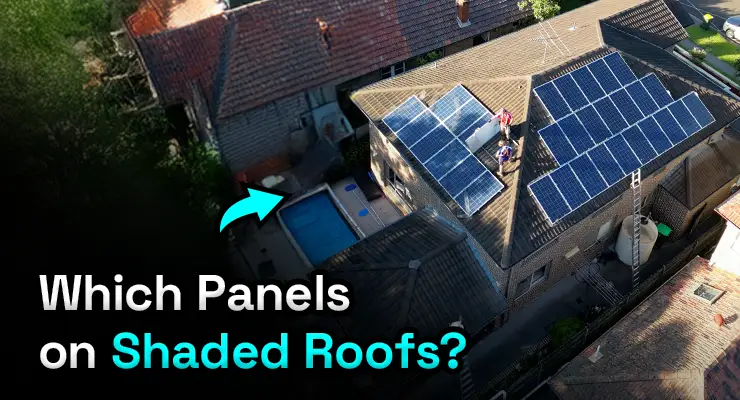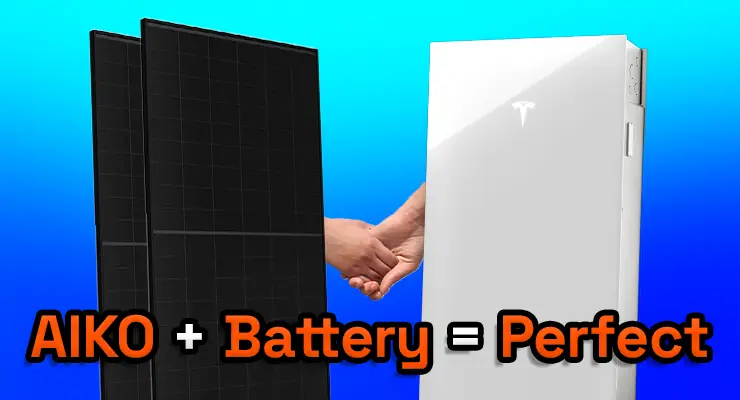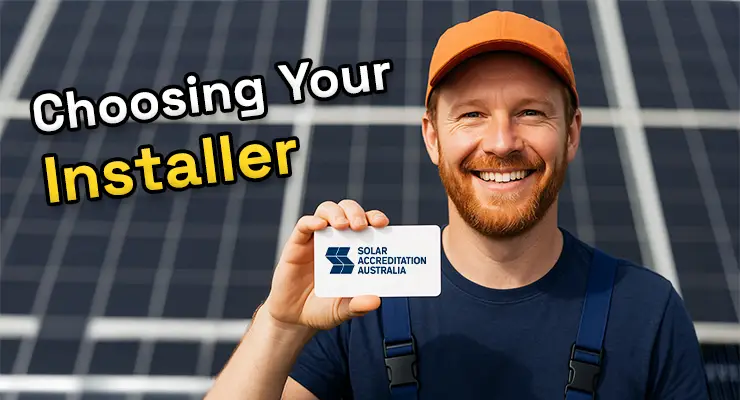
Fast read
Going off the grid with a solar system in Australia refers to a home's ability to produce and store its own renewable energy, disconnecting from the traditional grid.
Many homes, however, aren't designed for such self-sufficiency, and achieving it may demand significant changes, like smart energy planning premium insulation and double glassing.
Even with top-tier batteries like the Tesla Powerwall, most households would need multiple units for consistent energy backup. While off-grid systems decrease environmental impact and can save money, they often come with high initial costs and the risk of running out of energy, if not properly designed.
Given the complexities and expenses, most homeowners might find staying connected to the grid, if this is an option the better way. In rural situations, sometimes off-grid is a must-have and in such cases get an experienced, local supplier with off-grid expertise.
Why go off-grid with your solar system?
The term off-grid solar system refers to the concept of a house or business being able to produce enough renewable energy to run without connection to the main grid. It also means the ability to store this energy for night use, so that all their electricity needs are met and the occupants can disconnect from the grid. With constant innovation in renewable technology, the question of whether your home can be completely self-sufficient is continuously being raised.
The short answer is that unless your energy consumption is relatively small, or you are willing to spend a decent amount of money ($30,000 to $80,000) it’s hard to go off-grid while still enjoying all the daily comfort you are used to. So here is a look at the reality of going off-grid and whether it is a viable option.
Is it worth getting an off-grid solar system?
The main reason residential households find it challenging to go off-grid is that many homes lack a design for self-sufficiency. Meeting all of your energy needs would potentially require some redesign of your home.
This would then need smart-energy planning, a north-facing roof with no shading, premium insulation, double glassing etc. Although the amount of solar panels you have on your roof is a valuable factor in going off-grid, there are a number of other factors that many people do not take into account.
Even if you had installed a powerful battery such as the Tesla Powerwall, the average household would require 2 to 3 of them for reliable off-grid energy storage. This would ensure you could stay powered off-grid. However, if you have a smaller home or limited energy usage you may be able to get away with smaller batteries.
In general in the past off-grid solar used lead acid or gel batteries, which while cheaper, also enjoy a shorter lifespan than lithium-ion battery technology, like in the Tesla Powerwall.
In addition to panels and batteries, going off-grid would require your home to have extra wiring, inverters, mounting rails, safety equipment, and charge controllers. Any oof-grid design capable solar company can supply this, but people often are over-optimistic, and do not build in enough contingency reserves when designing an off-grid system.
So with all this extra time, money and effort to go off-grid, what are the benefits or drawbacks of this concept?
Benefits
- Decreases your environmental impact – When producing solar energy, let that be on or off-grid the concept of utilising the sun to produce electricity is able to offset your carbon emissions significantly.
- Save money – With the cost of solar being at all-time lows and battery storage costs projected to decrease in the future, going off-grid is getting cheaper. If you are able to produce and store your own energy it will allow homeowners to save thousands in the long run, as they are electricity bill-free.
- Makes your home energy independent – Going off-grid allows your home to be completely independent of the grid. This allows for more accurate energy usage and cost statistics. It also means protection from local blackouts and protection from expected rising energy costs, for life.
Disadvantages
- You may pay for more than you need – When going off-grid you have to prepare for your maximum energy usage rather than what you use on a day-to-day basis. The reason is that you have to build in reserves as if it rains for a week or so, you need enough battery capacity to get you through this “solar drought”. This means you may spend a significant amount of money to only ever use the off-grid facilities’ extra capacity a few times a year.
- You are on your own – When you go off-grid you will generally need a system that is extremely reliable. This means the best possible gear and the best possible gear is usually more expensive. If you stay connected to the grid you can feel safe knowing that in the worst-case scenario, you are still backed up, and therefore can get away with a much smaller home storage battery as a starter.
- The cost – Although it may seem easy to get everything installed, one of the biggest factors about going off-grid as a residential home is the cost. It also means a lower ROI since the cost of purchasing solar batteries is still quite high. Batteries also have a shorter lifespan than a solar system which means you will be spending more money again in a decade or so, when the off-grid batteries need replacing.

So should you get an off-grid solar system or stay connected?
When deciding whether or not you should stay connected to the grid, you need to fully understand the difference between the two options. The difference between the two systems is that off-grid systems are significantly more expensive so you truly have to think long and hard before making the decision.
The cheapest off-grid system comes in at around $30,000 for a small 5-6kW off-grid solar system. You must also understand that with an off-grid solar system, you still have a risk that you can run out of energy. This means you also purchase a diesel backup generator.
No room to cut corners
Solar systems across the world, especially in Australia are undergoing technological improvements as the climate crisis gains more traction. Although going off-grid may seem like an ideal way to make use of this innovative technology, in reality, it is a relatively complex project and needs a well-qualified and experienced off-grid system designer and solar installer.
Regularly cutting corners like in many cheap bargain grid connect systems is not an option. If the system does not work 100% of the time, homeowners will regularly experience a lot of discomfort.
You can obtain the benefits of solar through an on-grid or hybrid system, which offers a much easier installation process. Therefore, we recommend that you stay connected to the grid if that is an option.
However, if you are located in a rural area or your current situation requires you to go off-grid it is a different story altogether, and in this instance go for an experienced local company with the necessary skills and top-notch support service.
Conclusion
In summary, deciding to go off-grid with solar power is a significant decision. It has its perks like being more environmentally friendly, giving you independence from the grid, and potentially saving money in the long run. But it also comes with challenges and costs, like needing expensive equipment and careful planning.
For most people, especially those in cities or suburbs, sticking with the grid or using a mix of solar and grid power might be easier and cheaper. These options still let you use solar energy but without the hassle of going completely off-grid.
So, before deciding, it’s smart to research and talk to experts to figure out what’s best for your situation and budget.


